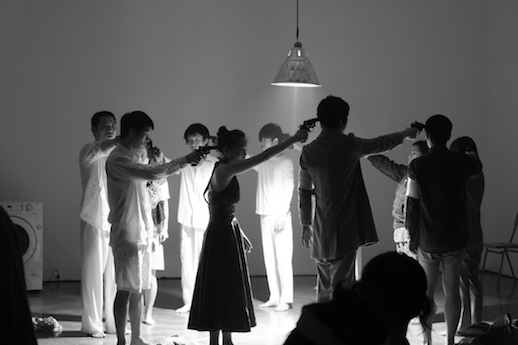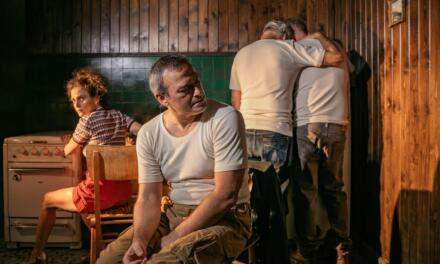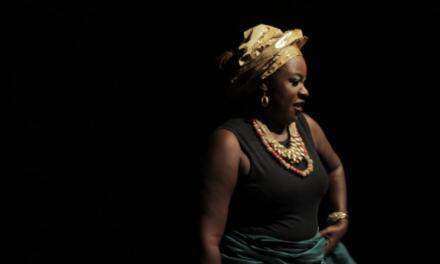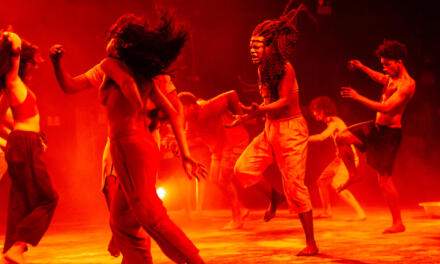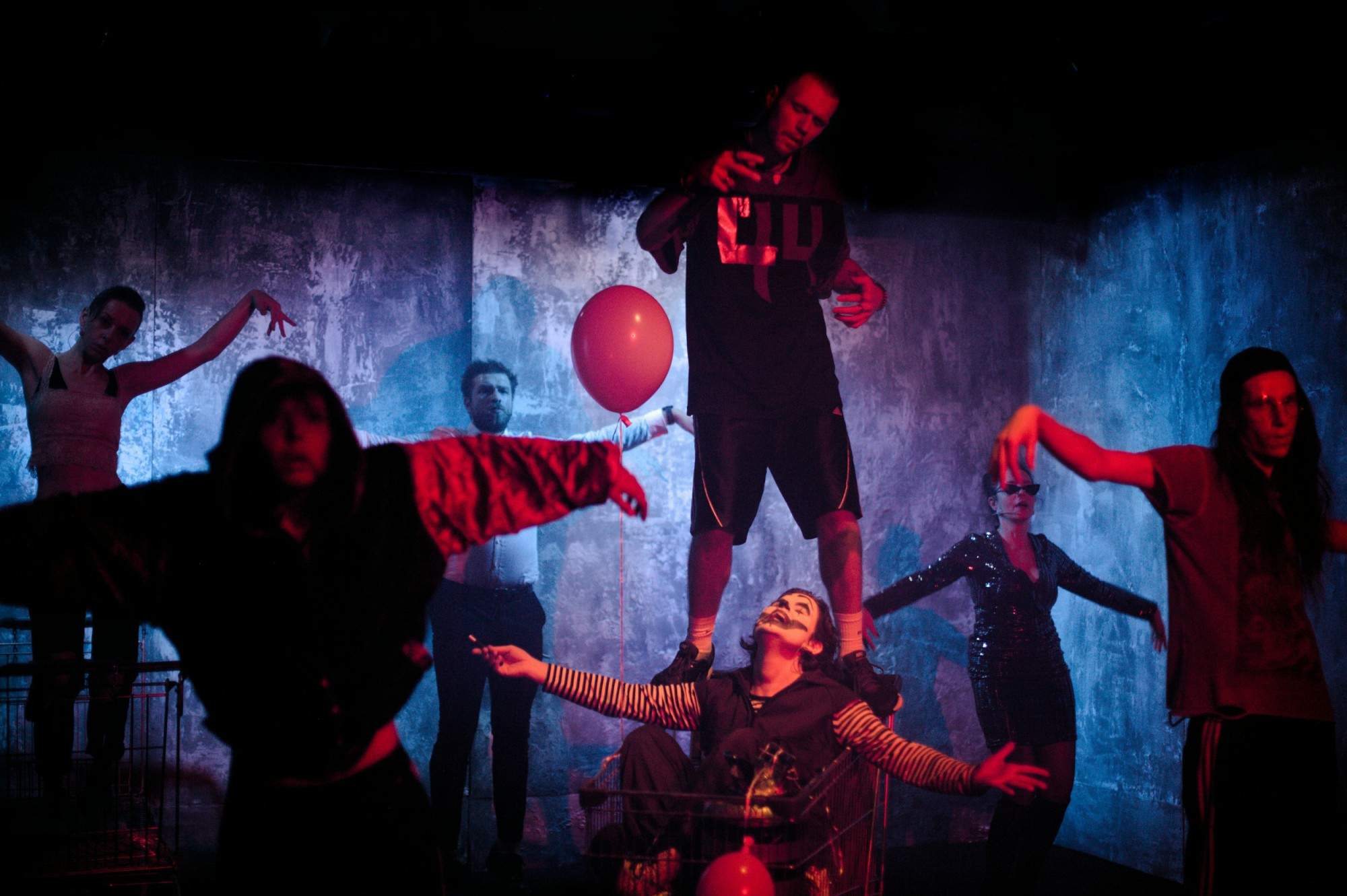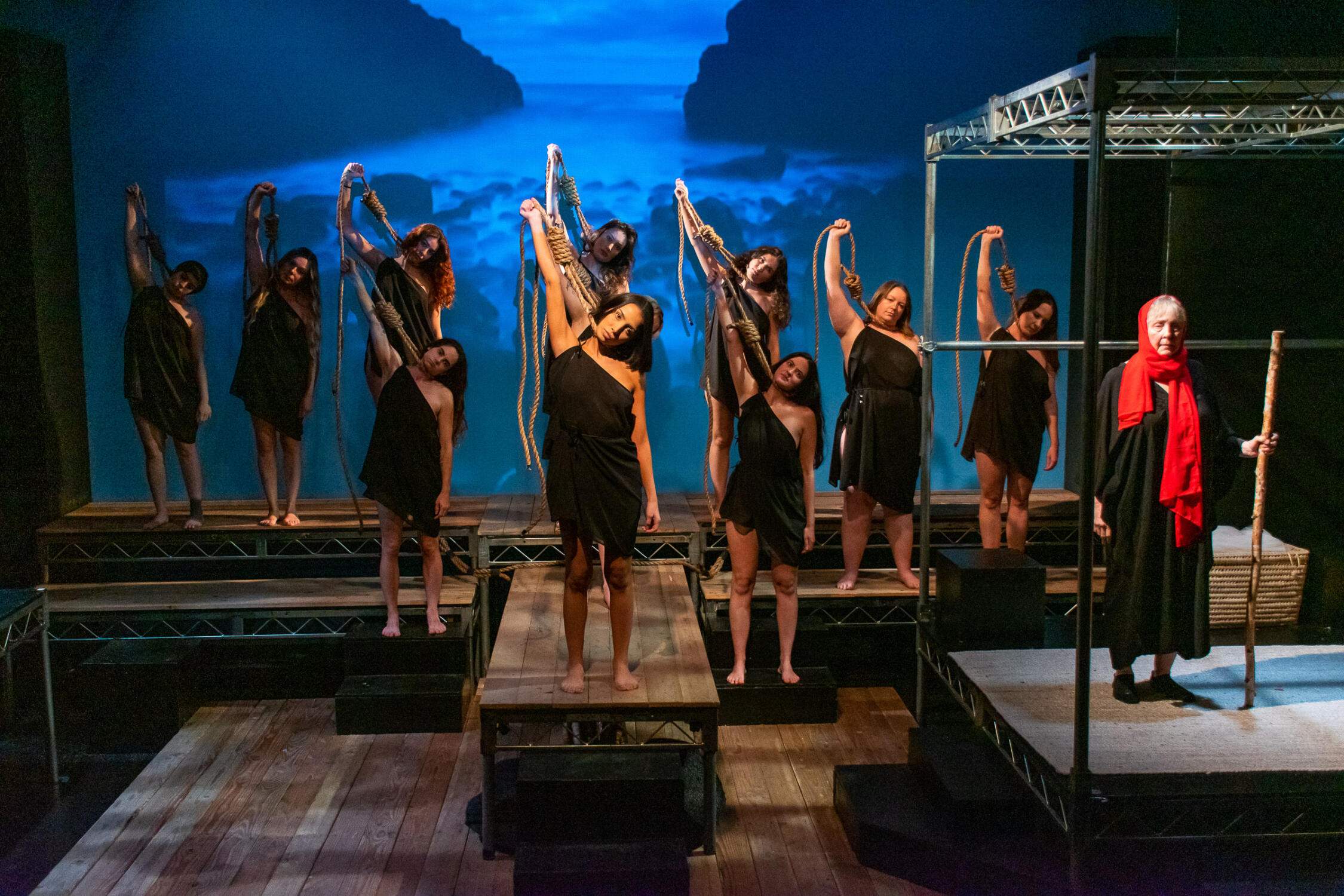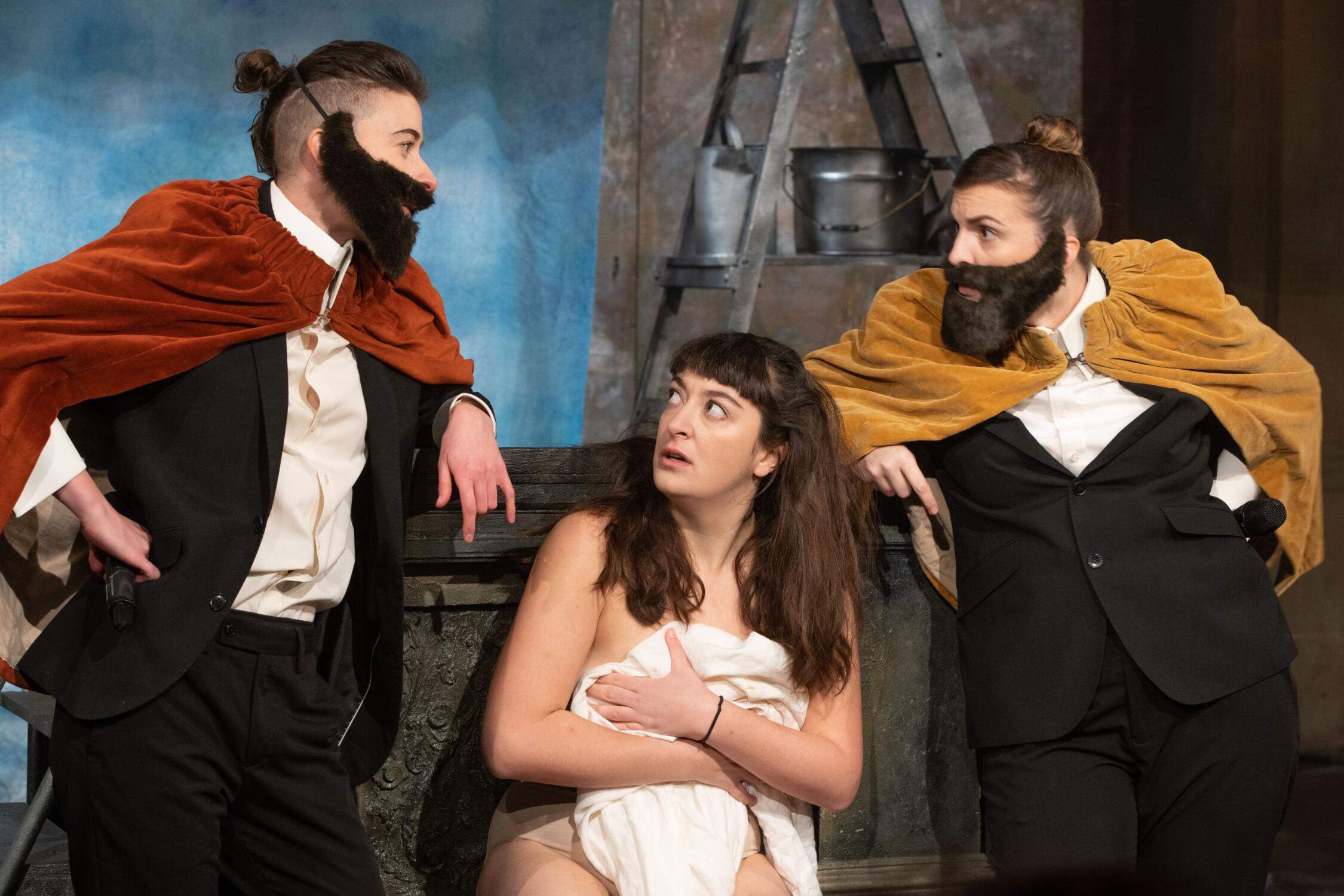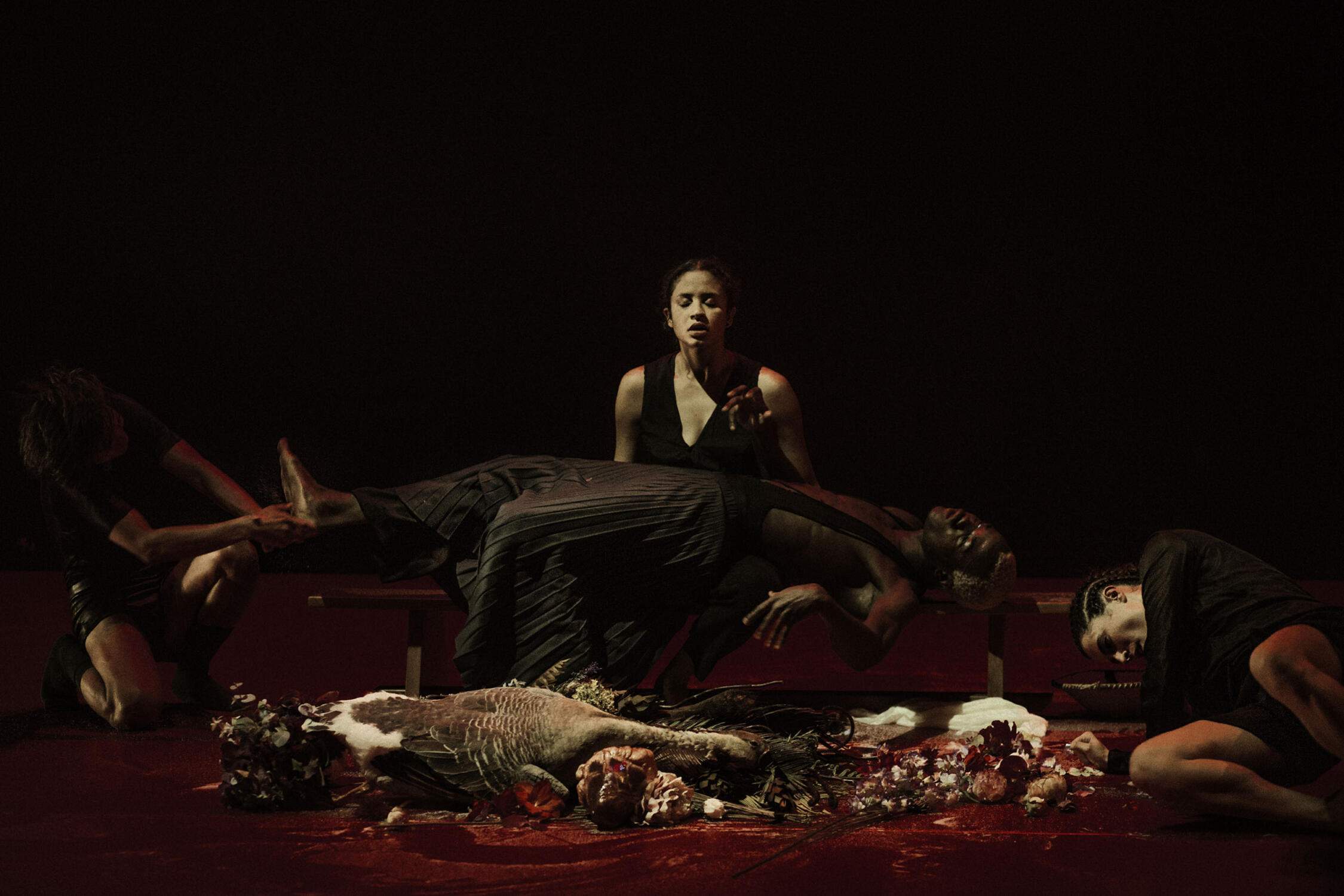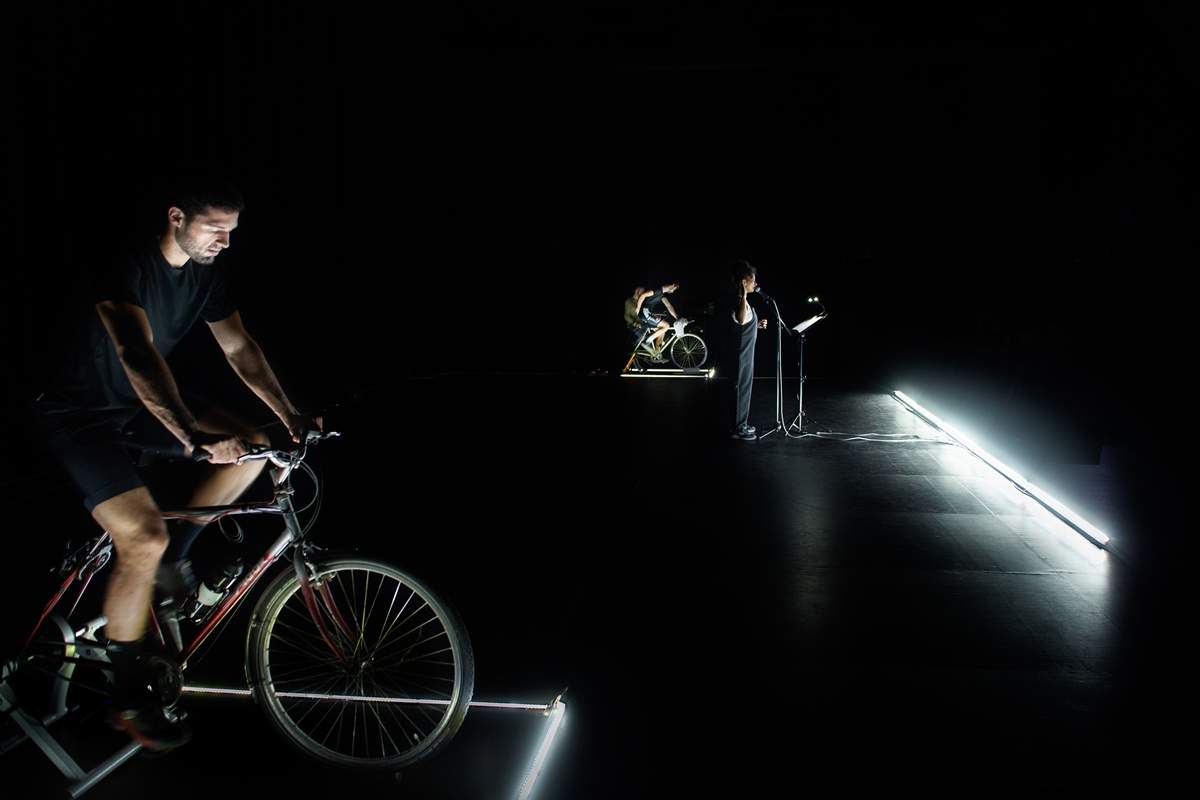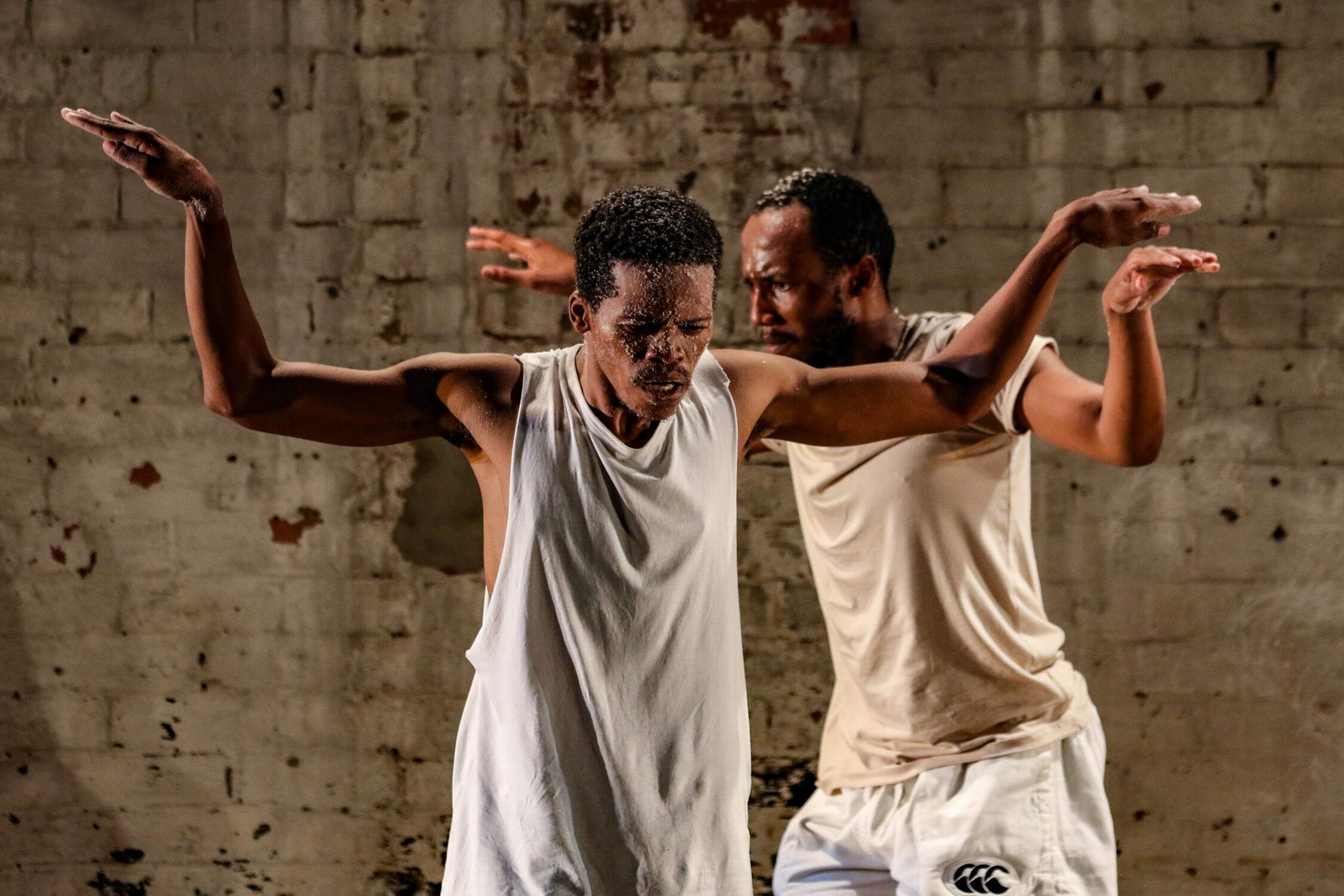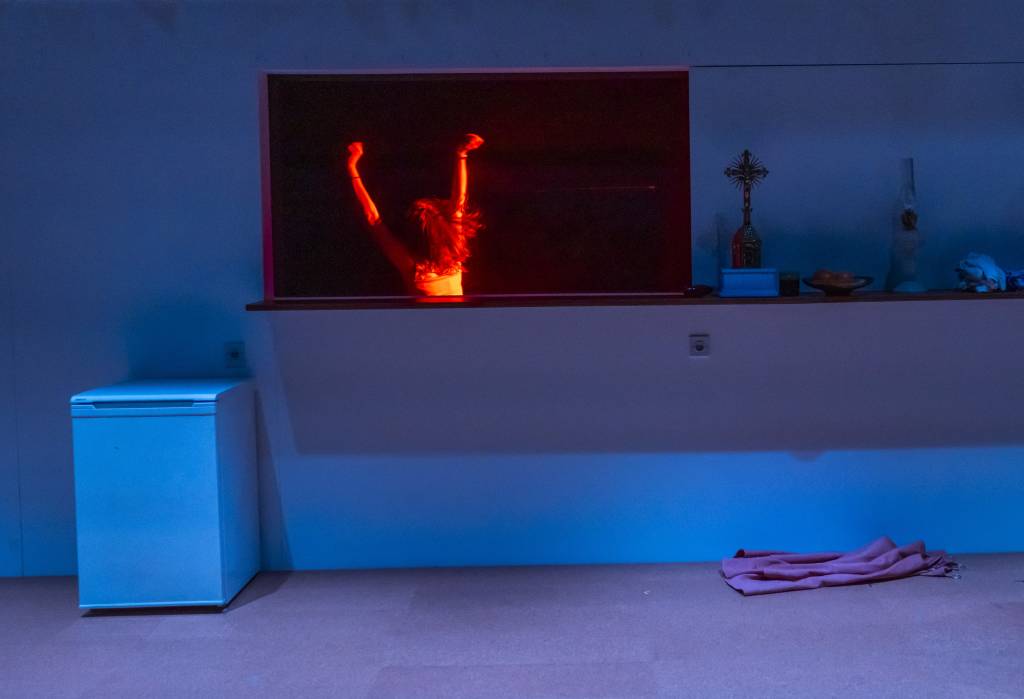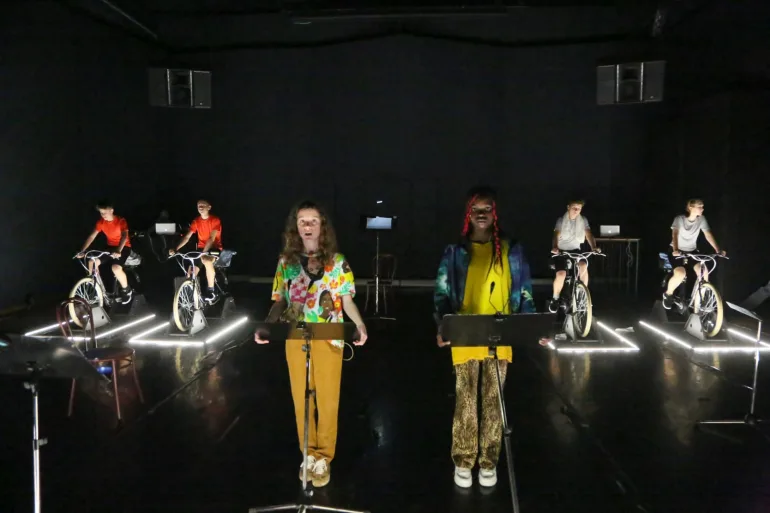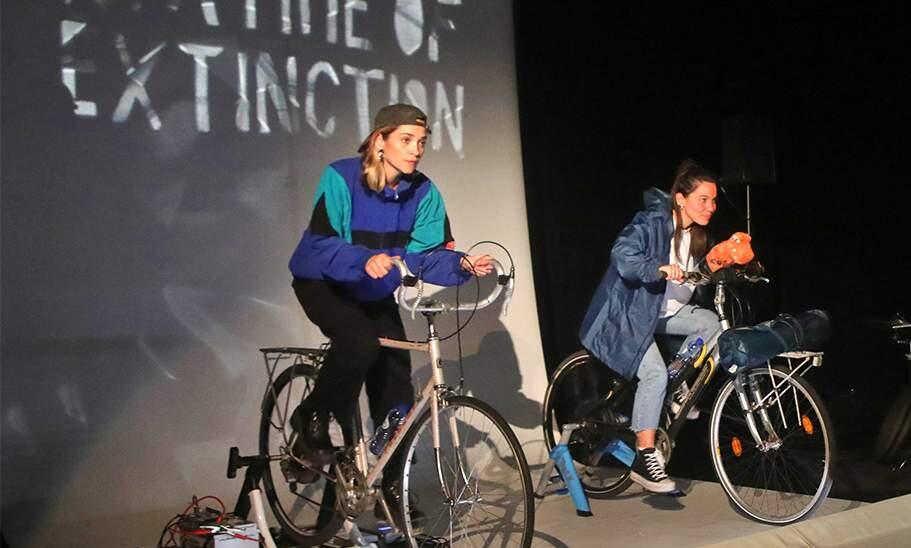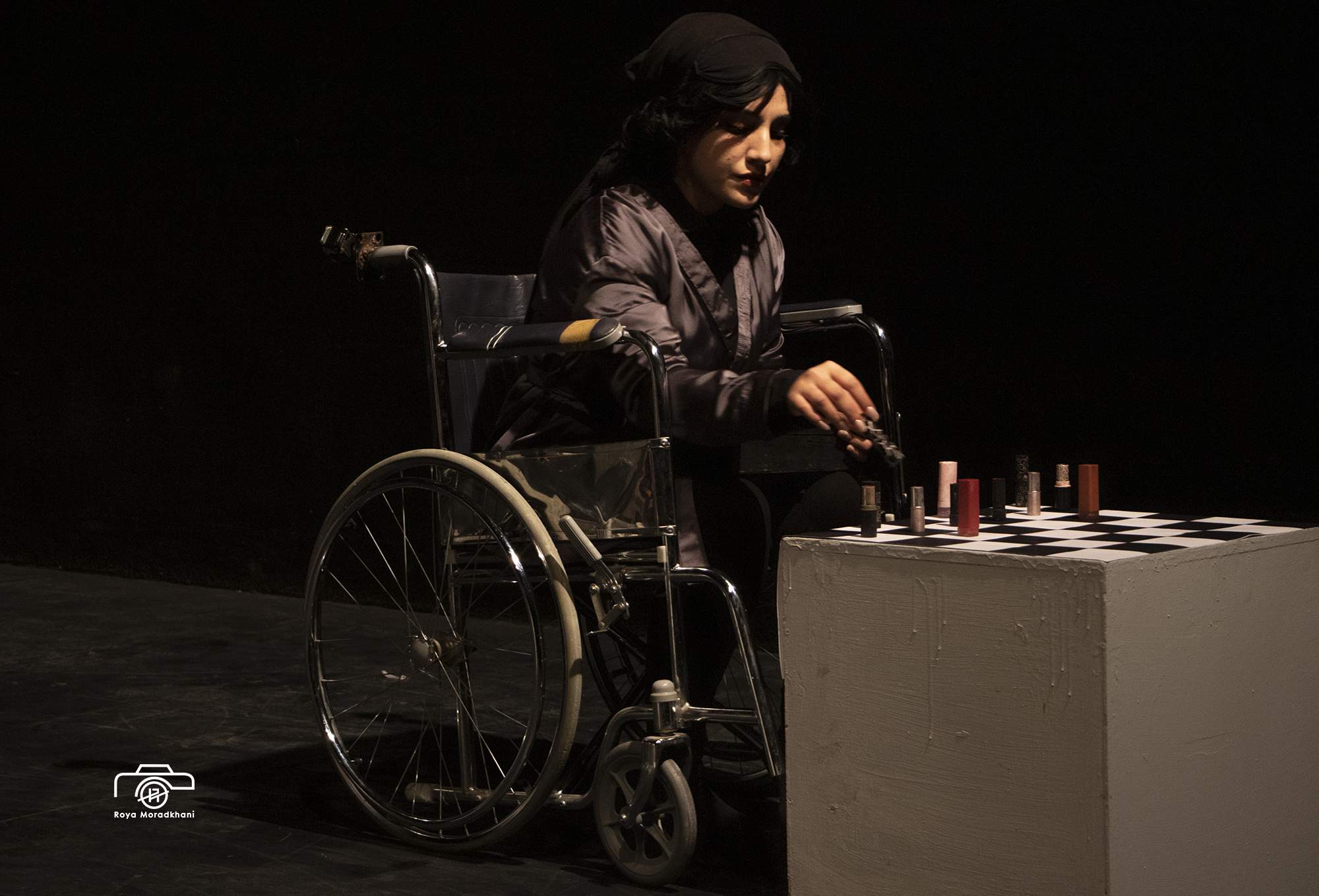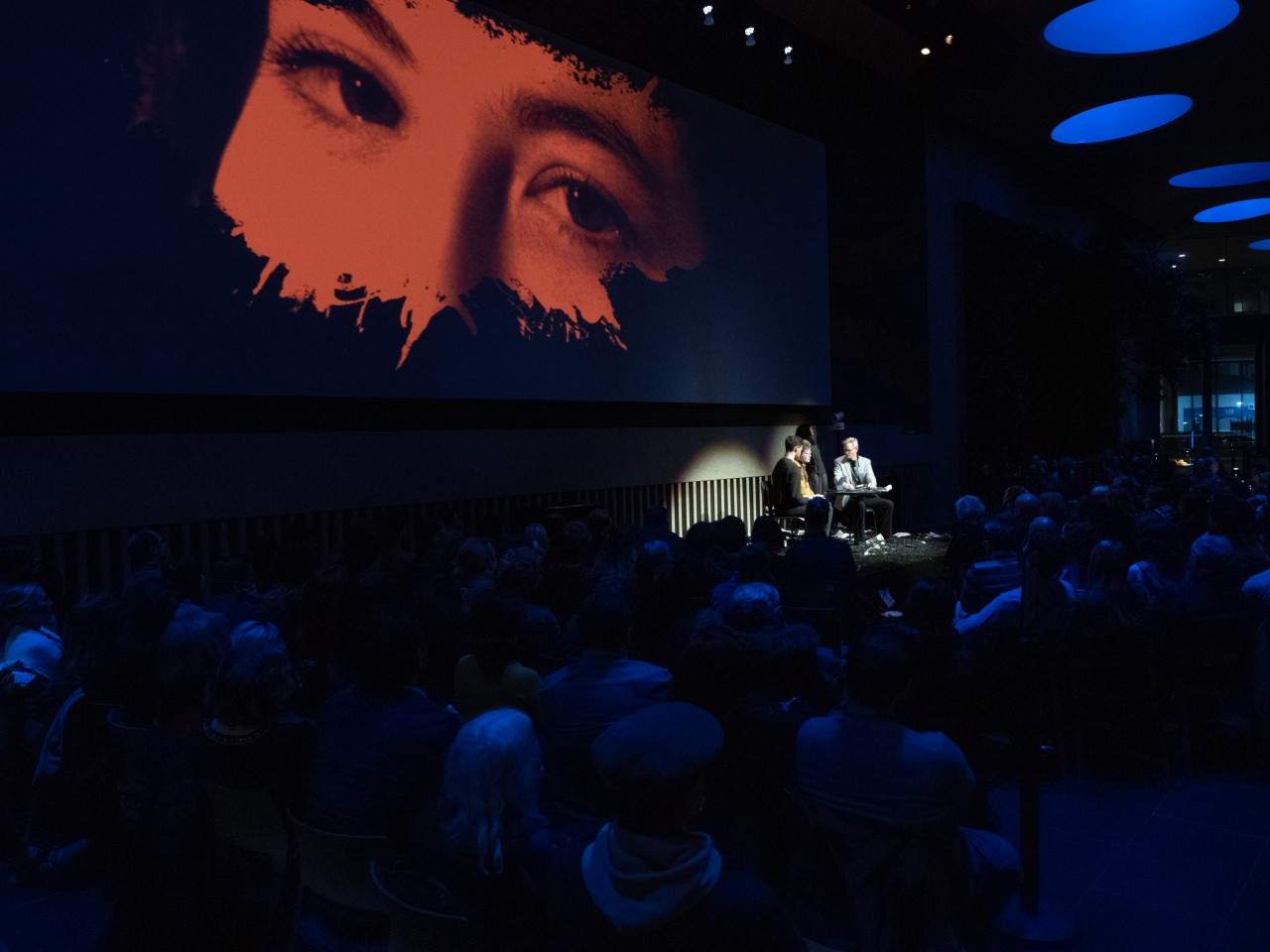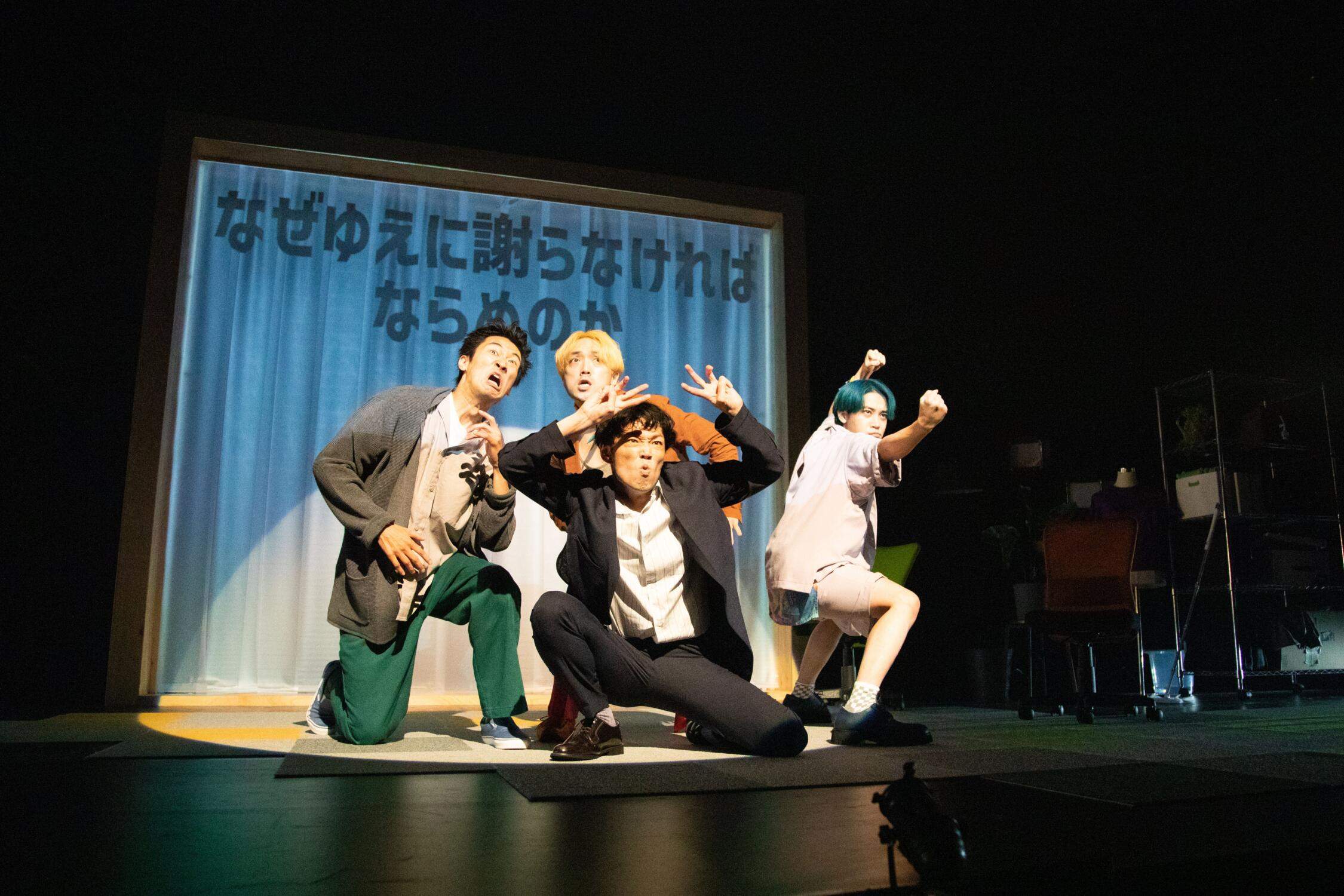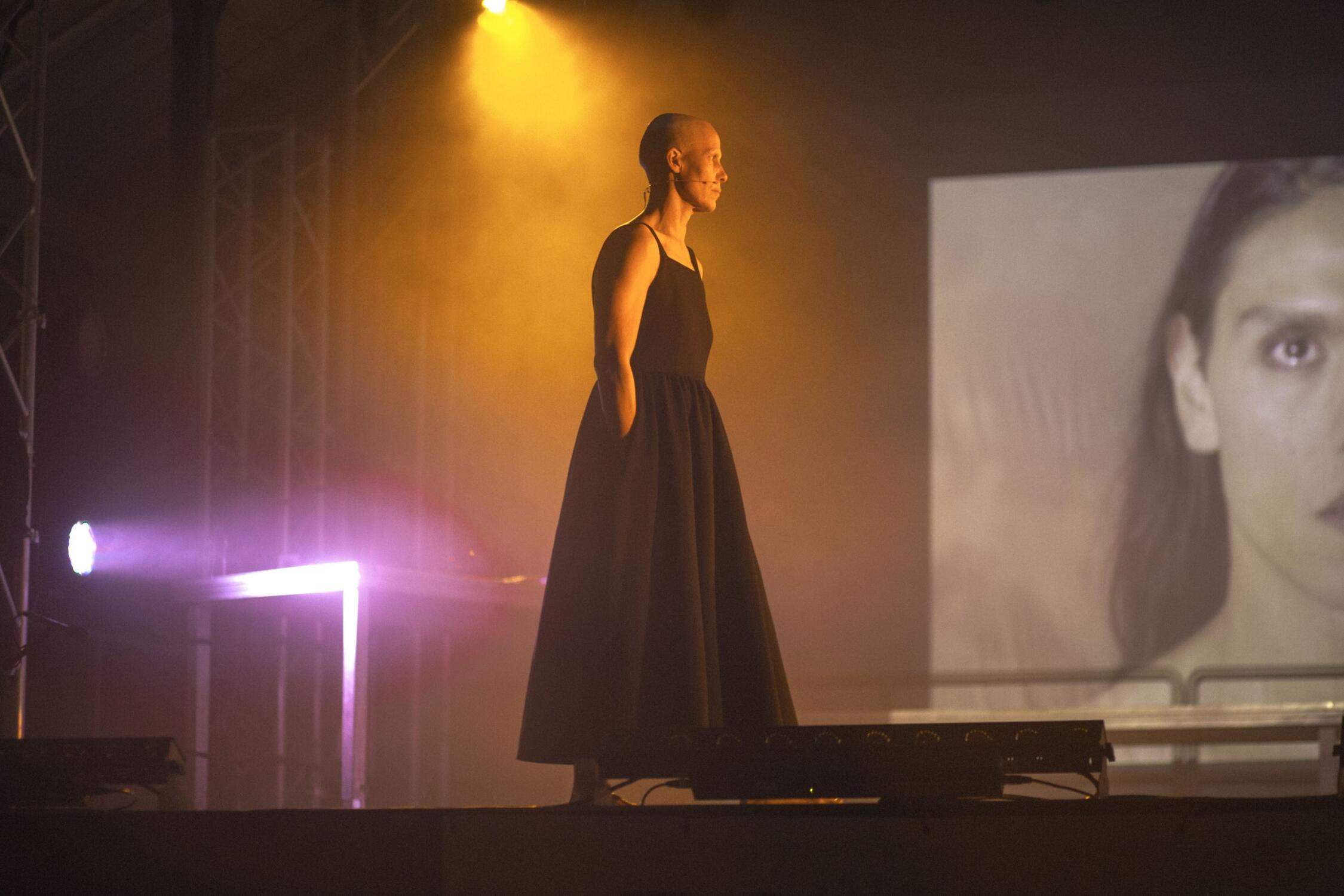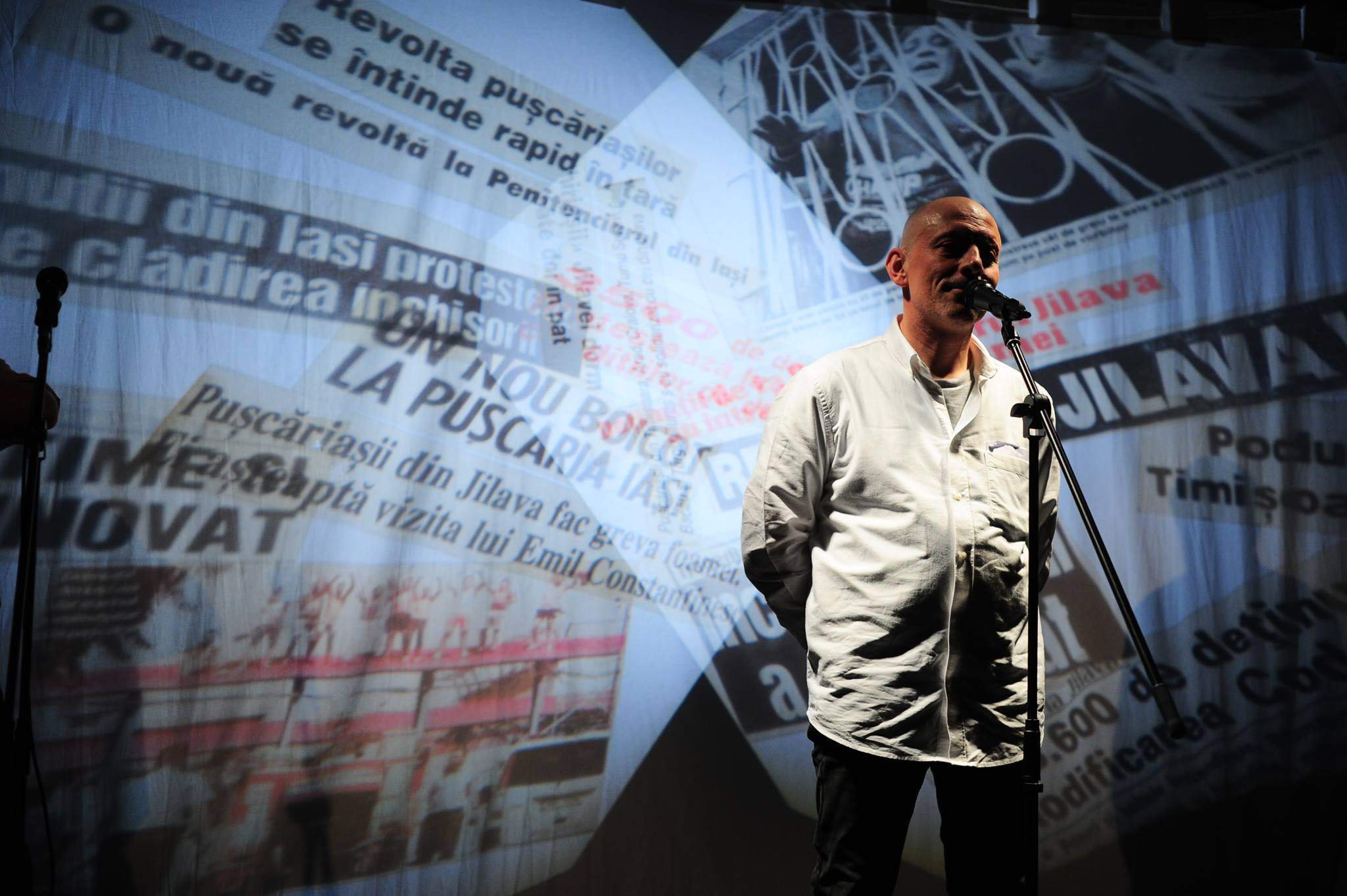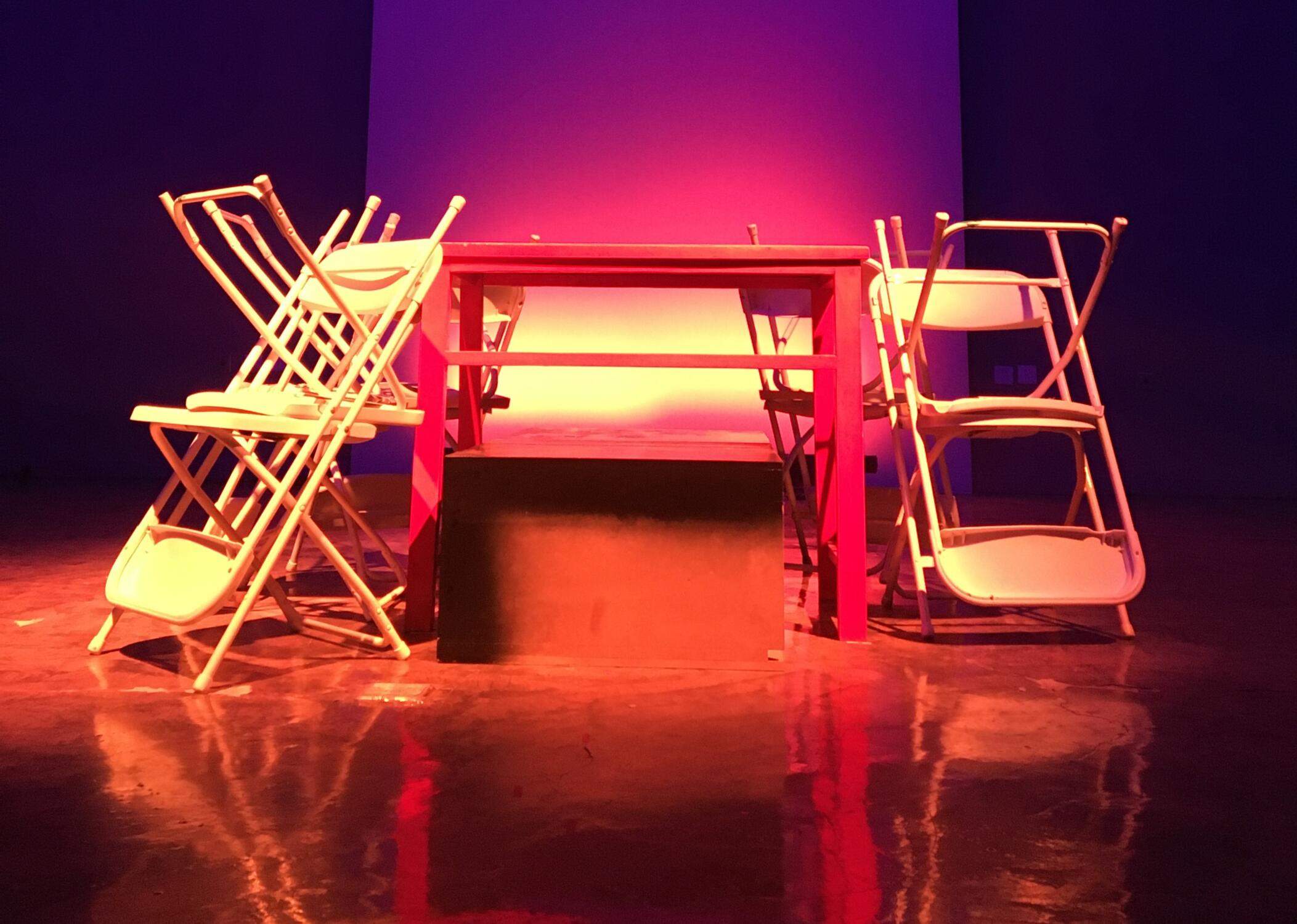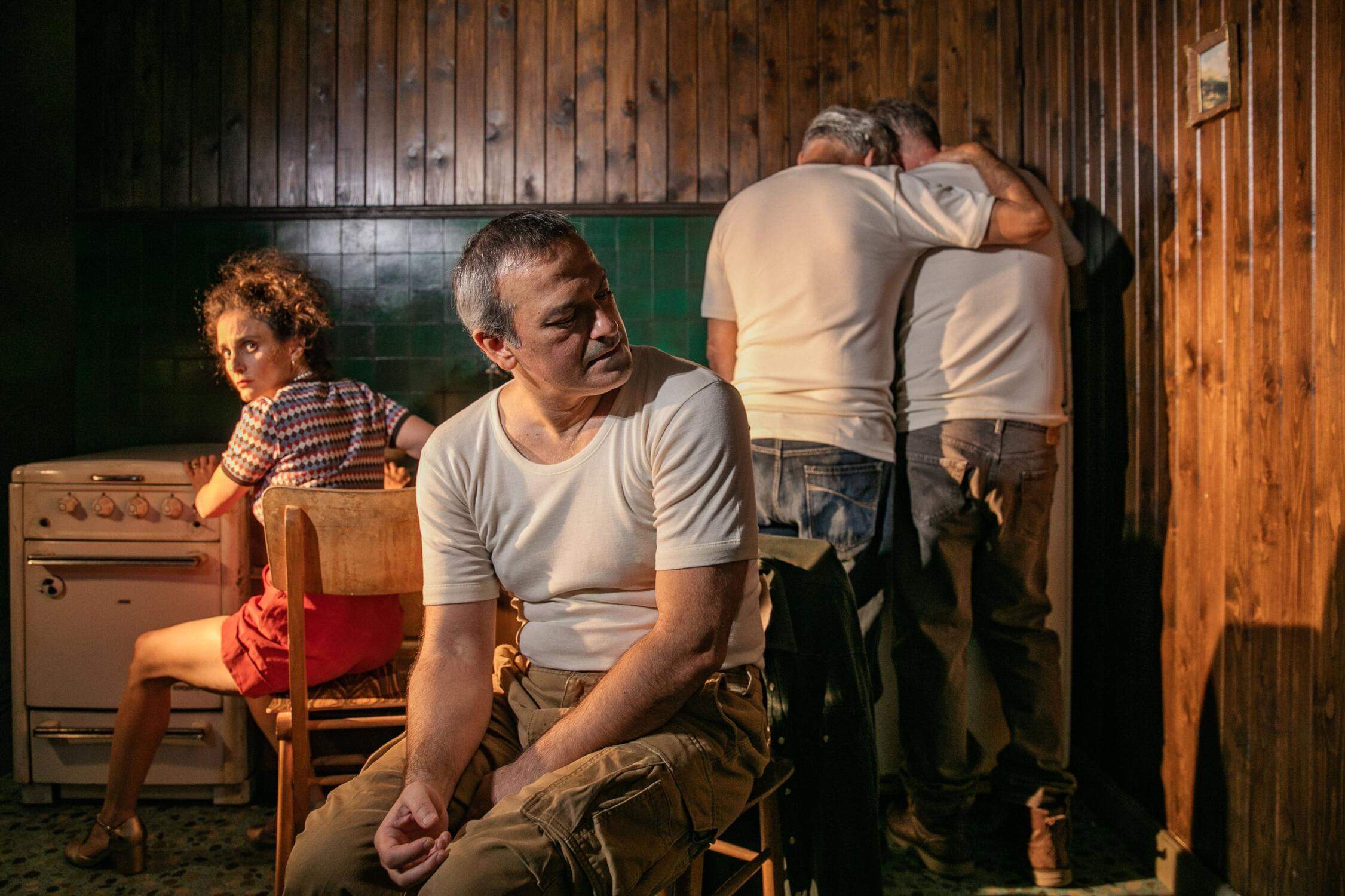Step-memories—Return of the Oppressed is the second work of the series An Insistent Reflection on Forms. The work attempts to closely examine the real nature of the Korean War, which still has not ended. An Insistent Reflection on Forms is a project which began as an outcome of persistent contemplation on the new mode of performance and the convergence of different genres, and tries to create a non-typical combination of heterogeneous languages and forms. As a part of the project, Step-memories— Return of the Oppressed also rejects being a mere theatrical play; rather, it takes a complex form, moving away from a theatrical form and combining different genres such as acting, music, video, and fine art. The work is also expressed through pursuing and juxtaposing interrupted events, images, and spoken testimonies. The text of the play is composed of various texts from books to video and popular songs including books War and Society (Kim Dongchun), On Violence (Hannah Arendt), War and People (Pyo Inju), War and Memory (Kim Gyeonghak et al.), Gokdu Sports Day (Lim Cheolwu), a book series A Survey of Modern Korean History (Kang Jun-man), A Soldier Who Beheaded A Landlord (Jeon Seonghyun), the video Bird’s Eye View (Ham Yangah), and A Song of a Wife (Shim Yeonok) and Q (Cho Yongpil), which are popular Korean songs from 1960s and late 80s respectively.
In reality, the unfinished war is still being constantly mobilized with political rhetoric. The strange people who propagate the possibility of waging a war against North Korea are the very people who do not have any power over the operation control to command war, or more like try hard not to acquire the right. (*The Eight United States Army has not yet returned the operation control over the Korean peninsula to the Republic of Korea Army.) Step-memories—Return of the Oppressed then unearths the stories of people who are disappearing into the forgotten history, buried in the grand narrative of war. It sheds light on the rupture between the survivors of a fratricidal war and the society in which they live. It confronts the historic event and examines the possibility of conversation between victims and assailants, or between victims and society by confronting the repressed memories. In the end, it summons those who suffered and died in the unrecorded history and who mourn for their deaths.
Text composed by greenpig
With additional text by Jeon Seonghyun
Directed by Yoon Hansol
ALSO WATCH:
Walter Byongsok Chon’s interview with the director of Step Memories: Return of the Oppressed, Yoon Hansol
This post was written by the author in their personal capacity.The opinions expressed in this article are the author’s own and do not reflect the view of The Theatre Times, their staff or collaborators.
This post was written by Written by greenpig, Directed by Yoon Hansol, (presented at Festival/Tokyo in 2012), South Korea.
The views expressed here belong to the author and do not necessarily reflect our views and opinions.

